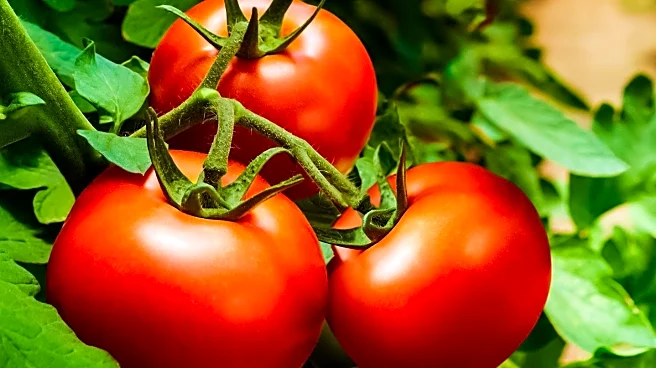What's Happening?
A recent study published in the International Journal of Hygiene and Environmental Health has found that consuming fruits and vegetables with high pesticide levels can significantly increase the presence of these chemicals in human urine. The study, conducted by the Environmental Working Group (EWG), compared USDA data on pesticide residues in produce with urine samples from the National Health and Nutrition Examination Survey. The findings indicate a strong correlation between the consumption of high-residue produce and elevated pesticide levels in the body. The study supports the EWG's annual Shopper's Guide to Pesticides in Produce, which lists the 'Dirty Dozen'—produce with the highest pesticide residues—and the 'Clean Fifteen'—those with the least.
Why It's Important?
The study highlights the potential health risks associated with pesticide exposure, including congenital malformations, cancer, and heart disease. Children are particularly vulnerable, with exposure linked to developmental issues and increased cancer risk. The findings underscore the importance of monitoring pesticide levels in food and the need for consumers to make informed choices about their produce consumption. The study also challenges the adequacy of current regulatory measures, suggesting that the cumulative effects of multiple pesticides should be considered rather than individual levels.
What's Next?
The study's results may prompt further research into the health impacts of pesticide exposure and could influence public policy regarding food safety standards. Consumers may increasingly seek organic produce or those listed in the 'Clean Fifteen' to minimize exposure. Advocacy groups might push for stricter regulations on pesticide use and more comprehensive testing methods.
Beyond the Headlines
The study raises ethical questions about the balance between agricultural productivity and public health. It also highlights the need for transparency in food labeling and the potential for increased consumer demand for organic and sustainably grown produce.










